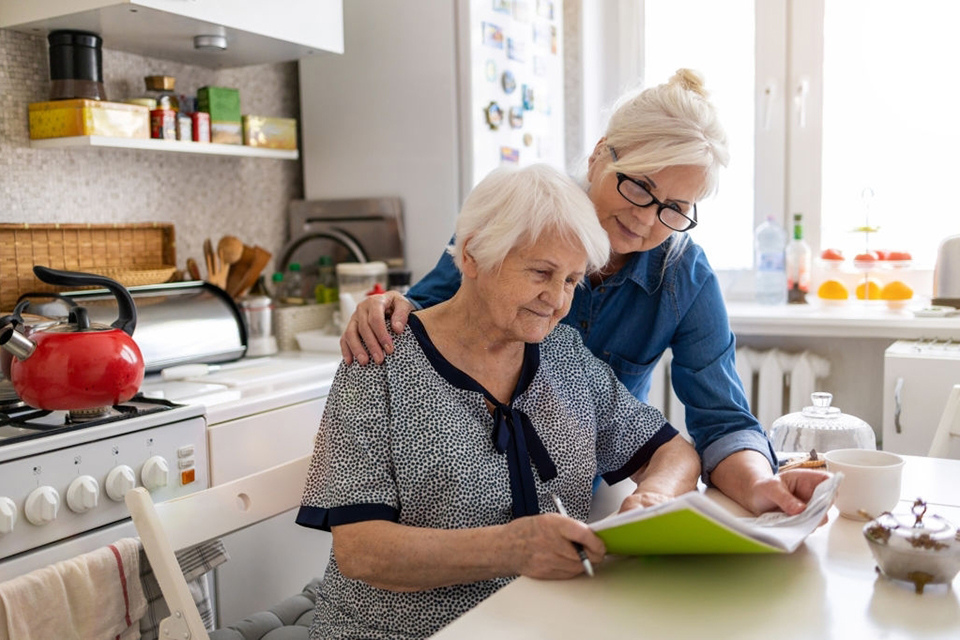Lamy Center Caregiver Connection: Quarantine, Isolation, and the Professional or Family Caregiver
Written By: Rudi Lamy, MLS, MAS, Consultant to the Peter Lamy Center on Drug Therapy and Aging
When I began researching and writing this topic, we were in the midst of the COVID-19 pandemic. I originally envisioned a two-part series that specifically focused on the effects of the quarantine and resulting isolation in which we as caregivers found ourselves enmeshed.
But, as often happens, plans change, and part one of this blog series offered an account of my own special New Year’s trip through memories, loneliness, and guilt. So, rather than rehashing those personal observations again, I thought it appropriate to share links to some online materials I found that helped me understand and cope with the stress and feelings brought about by trying to balance my personal life with my responsibilities as a family caregiver for my wife.
A Selection of Readings:
Caregiver Stress: Tips for Taking Care of Yourself
Mayo Clinic Online
4 Things You Can Do to Alleviate Caregiver Stress
Harvard Medical School Online
Mental and Physical Health Effects of Family Caregiving
American Psychological Association Online
Caregiver Burnout: Steps for Coping with Stress
AARP Online
Alzheimer’s Association Online
Coronavirus (COVID-19): Tips for Dementia Caregivers
Alzheimer’s Association (COVID-19) Online
Cambridge University Press
Treating Dementia Patients in the Time of COVID
Psychiatric Time
Karger
Dementia Care Providers’ Delivery of Family Caregiver Support during COVID-19
Innovation in Aging
Dementia Care in the Time of COVID-19 Pandemic
IOS Press
Caring for the Alzheimer Caregiver First During COVID-19
Annals of Long-Term Care
Caregivers’ Mental Health and Somatic Symptoms During COVID-19
The Journals of Gerontology
Alzheimer’s Association
Harvard Medical School
Stress Reduction and Relaxation Techniques
University of Wisconsin Oshkosh
Japan Journal of Nursing Science
International Journal of Environmental Research and Public Health
Authors Notes on Publications & Sources
I was reminded that there should be notes with the citations explaining why I chose a particular reading. Easier said than done, actually. For sources that would be non-professional yet still reputable, I used Google to search for information on caregiver stress. Google also let me search specific organizations such as AARP, or the Alzheimer’s Association online. For material that would definitely be professional in nature, I used PubMed, the online database provided by the National Library of Medicine at NIH. There is also a fair amount of duplication that I left in the list as some sources found using Google were also found using PubMed.
Given the plethora of different sources available, a researcher might assume from the start that there would be differing opinions on how caregivers might deal with the stress of their situation. I found, much to my chagrin, that while each reading has a different format, they all have the same meaning.
I provide here an edited sample of using the information from the Mayo Clinic:
To help manage caregiver stress
- Accept help: Be prepared with a list of ways that others can help you.
- Focus on what you are able to provide: It’s normal to feel guilty sometimes.
- Set realistic goals: Break large tasks into smaller steps that you can do one at a time.
- Get connected: Find out about caregiving resources in your community.
- Join a support group: A support group can provide validation and encouragement.
- Seek social support: Make an effort to stay well-connected with family and friends who can offer nonjudgmental emotional support.
- Set personal health goals: For example, set goals to establish a good sleep routine, find time to be physically active on most days of the week, eat a healthy diet and drink plenty of water.
- Many caregivers have issues with sleeping: Not getting quality sleep over a long period of time can cause health issues.
- See your doctor: Get recommended vaccinations and screenings. Make sure to tell your doctor that you’re a caregiver. Don’t hesitate to mention any concerns or symptoms you have.
Keep in Mind: Science Marches On
Please remember that, searching in fits and starts, I likely found these citations between the publication of the October 2020 blog post and the May 2021 blog post. Since that time, newer professional studies on the subject have started, and newer professional publications might be available now. Consider using the sources above as a jumping off point as you conduct your own research.
I hope this is helpful.
Take care of yourselves.
Thanks for reading,
Rudi

